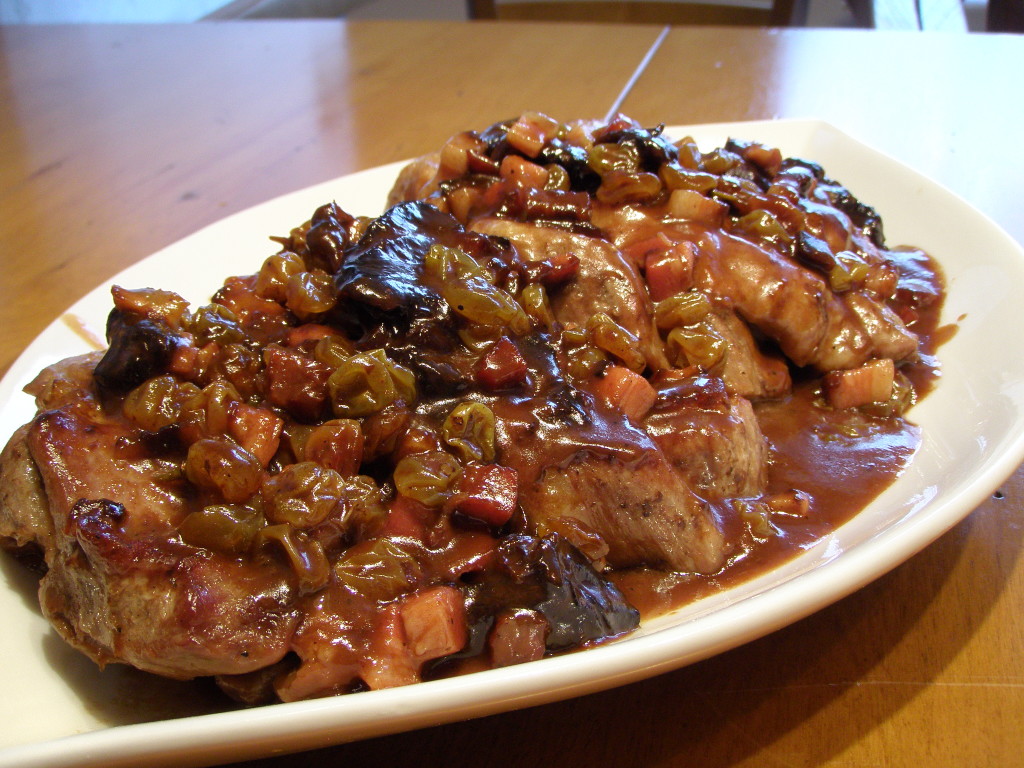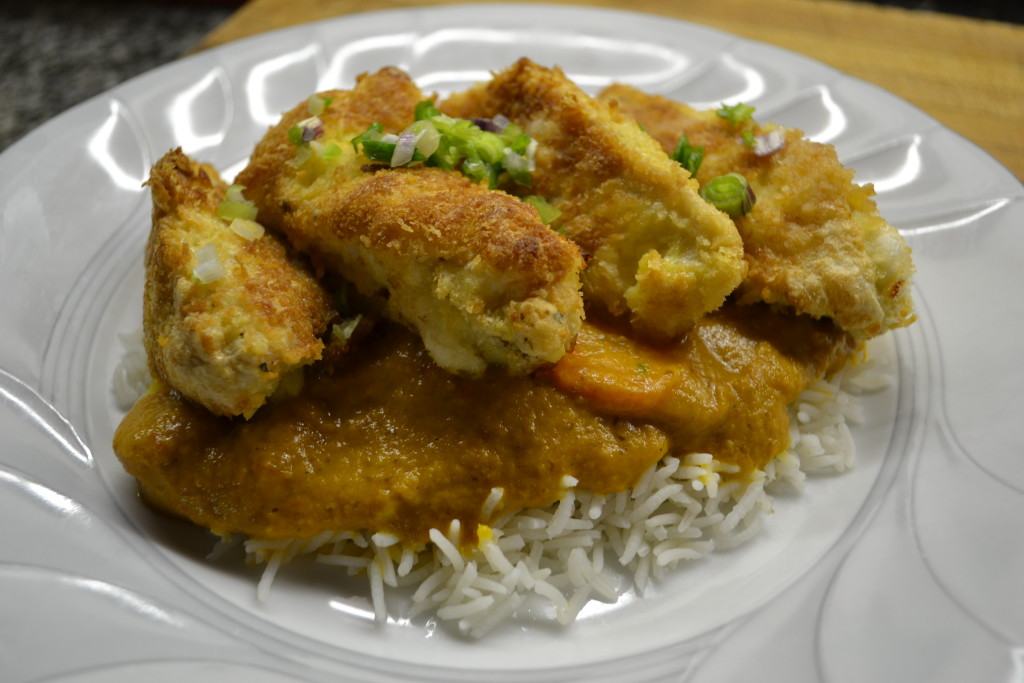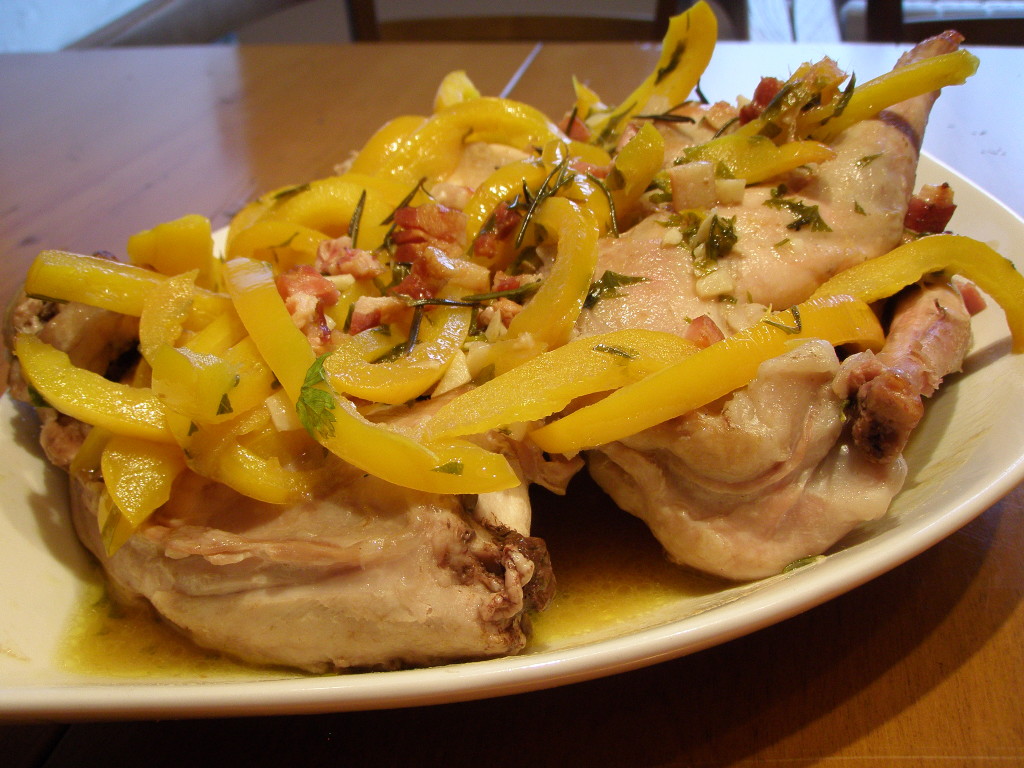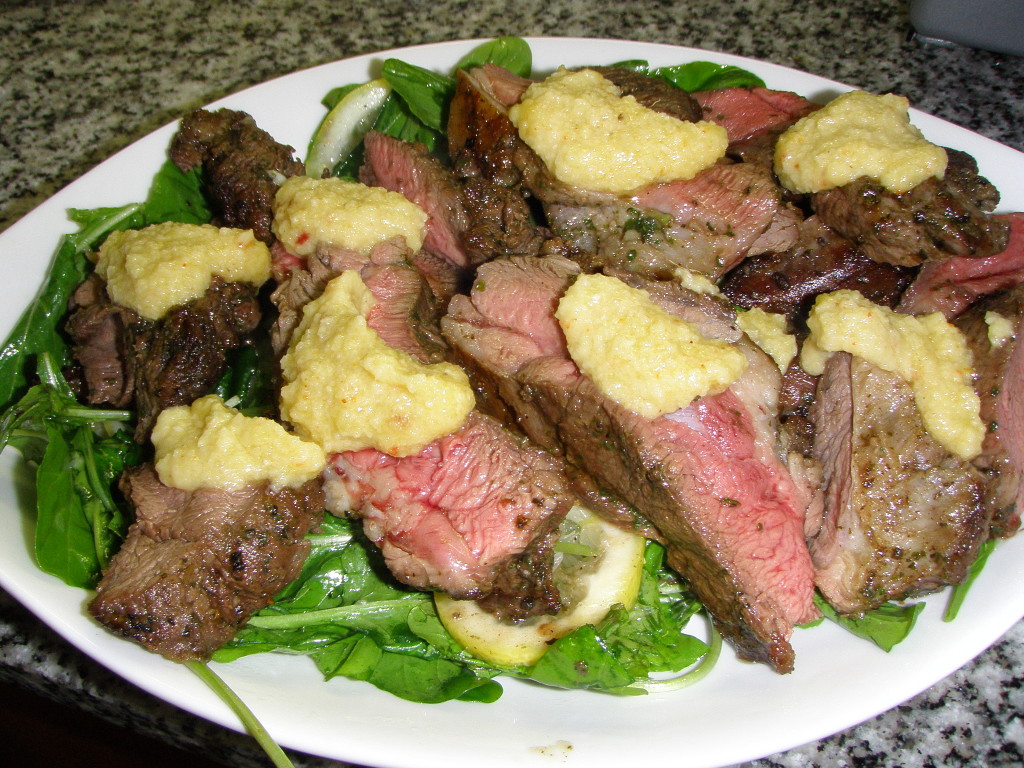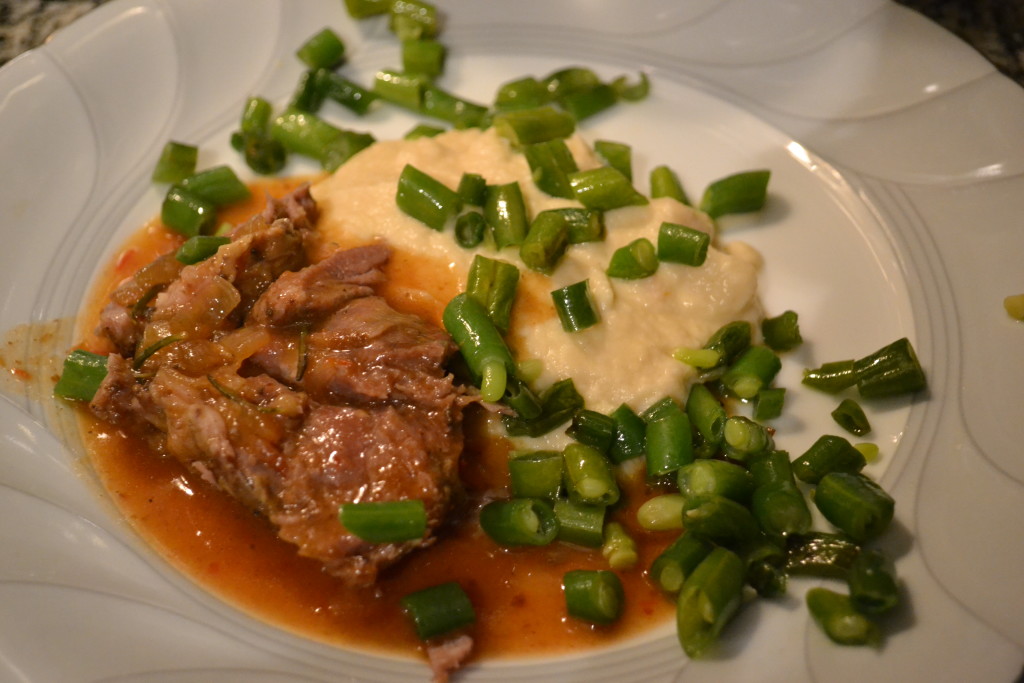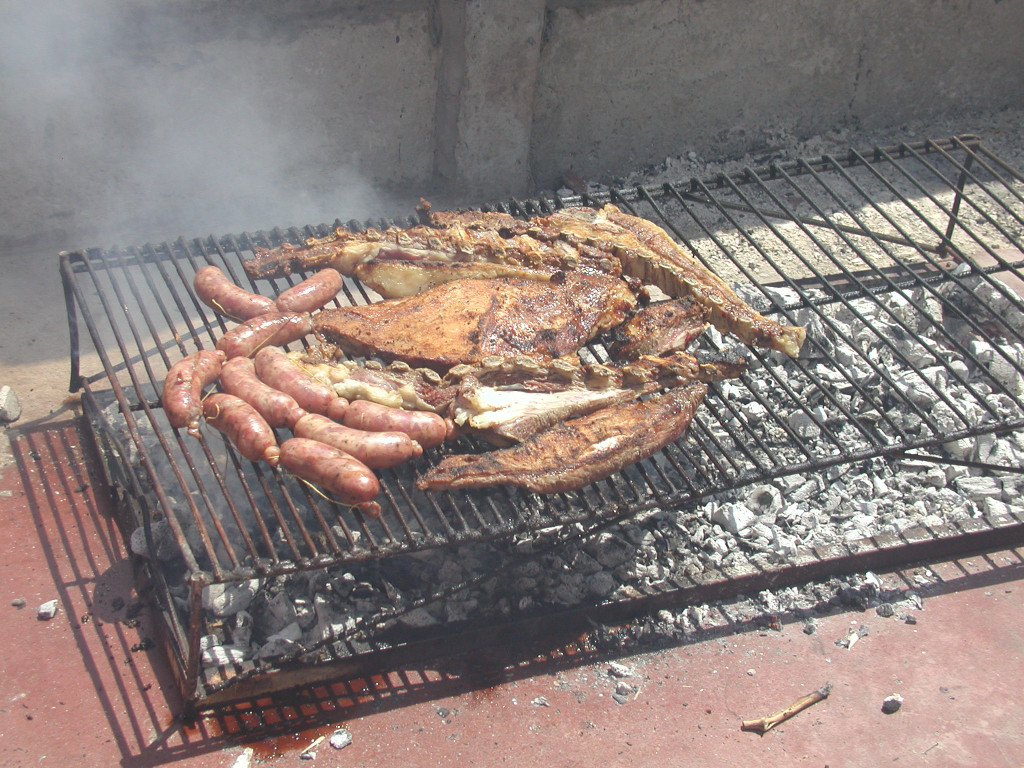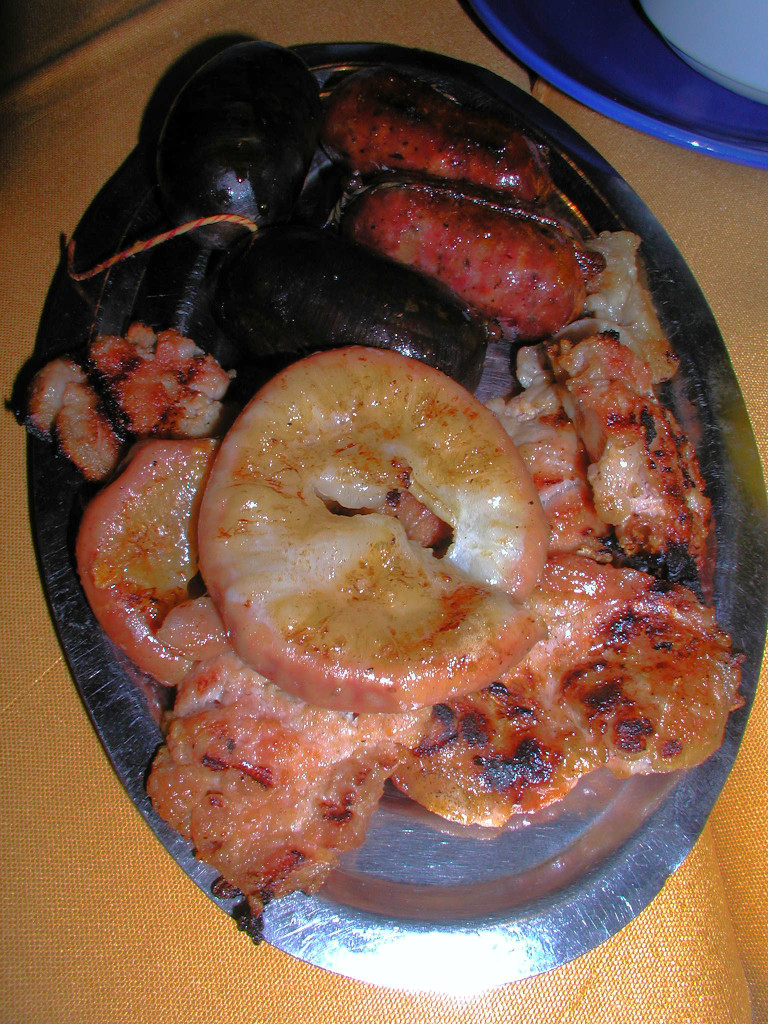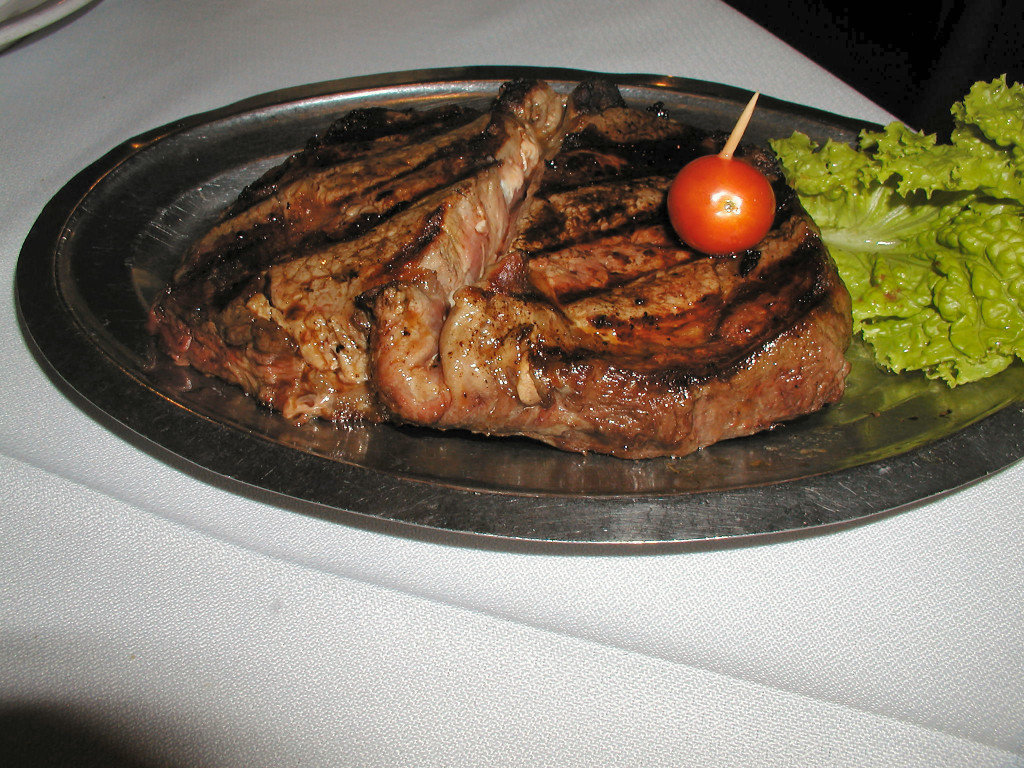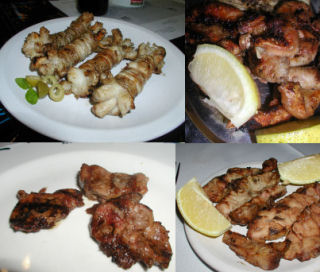Pork n’ chocolate
On Sunday supplement
Food and Wine
We joke about the ubiquitousness of dulce de leche here, wondering when the first restaurant is going to offer up a steak or innards with some sort of caramel sweet sauce preparation. But we often don’t think about how much we use sweet ingredients in our own cooking, wherever we may be from. Sometimes it’s fruit, sometimes it’s honey or sugar. It might be a sweet and sour or sweet and spicy sauce – but the Argentines wouldn’t be the first to cross that line in the sugar sand.
Even in my own culinary background the use of chocolate and/or cocoa is not unheard of. A touch of powdered cocoa in pasta, especially with a game or mushroom dish, is not uncommon in Italian cooking. On the American Jewish side we’ve got our version of the classic German pumpernickel, chock-ful of cocoa and molasses to give it that dark, rich color and hint of sweetness and bitterness all in one. South of our border our Mexican neighbors have been adding cocoa or chocolate to dishes for eons, the most famous being some of the varieties of moles on offer.
I have yet, however, to encounter an Argentine recipe making use of either cocoa or chocolate in a savory dish. That’s not to say they don’t exist and I’m up for hearing about them, I just haven’t encountered them. But I could see a bit of either being added to a classic regional stew like a locro or carbonada. Some experimentation is in order, no doubt.
With the New Year holiday coming up this week, I thought I’d trot out a favorite holiday dish from the Sardinian repertoire. Bistecchine di Cinghiale – Wild Boar Steaks in a Sweet-Sour Sauce – is one that goes back to antiquity, in the days when it was its own kingdom. Okay, not really, since cocoa beans weren’t introduced to Europe until well past that period, but it goes back awhile, like maybe the mid-19th century. Now, not all of us have a source of wild boar – jabaliacute; – here, and since I rarely find it, or when I do it’s prohibitively expensive, I make this dish with thick steaks cut from the bondiola – the pork shoulder (or on the American side, called the pork butt). The flavour’s not as intense, nor, obviously, gamey, but it’s delicious nonetheless.
Bistecchine di Cinghiale – Wild Boar Steaks in a Sweet-Sour Sauce
1 kg boar steaks (pork shoulder steaks can be substituted)
6 tablespoons olive oil
250 gm bacon, finely chopped\
salt
4 tablespoons sugar
4 bay leaves
300 ml red wine vinegar
100 gm yellow raisins, seedless if available
100 gm pitted prunes or apricots
100 gm dark chocolate, grated
pinch of cinnamon and/or nutmeg
4 teaspoons flour
Saute the bacon in oil over low heat. Brown the steaks in the olive oil on both sides, sprinkle with the salt and leave to cook gently for 15 minutes.
In a saucepan put the sugar, bay, and 2/3 of the vinegar and cook, stirring, over low heat until the sugar has dissolved. Add the fruit, chocolate and spice and cook until the sauce has thickened, about 10 minutes.
Meanwhile, mix the flour with the remaining vinegar and pour over the steaks, continue cooking 10 more minutes.
Add in the sauce and cook 10 minutes more, turning regularly to keep the steaks well coated. Serves four as a main course.
I recommend serving the dish with a side of gnocchi or, if you want to get more authentic, you could, perhaps, find the classic Sardinian malloreddus pasta – though unlikely, I’ve not seen it here, however, I do see cassareccia pasta here which is pretty similar and will work just fine.
A series of recipes and articles that I started writing for the Buenos Aires Herald Sunday supplement, Food & Wine section, at the beginning of 2012. My original proposal to them was to take local favorite dishes and classics and lighten them up for modern day sensibilities. We’re not talking spa or diet recipes, but at the very least, making them healthier in content, particularly salt, fat and portion size. As time went by, that morphed into a recipe column that, while emphasizing food that is relatively “good for you”, wasn’t necessarily focused on local cuisine. At the beginning of 2013 I decided to stop writing for them over some administrative issues, but it was fun while it lasted.
